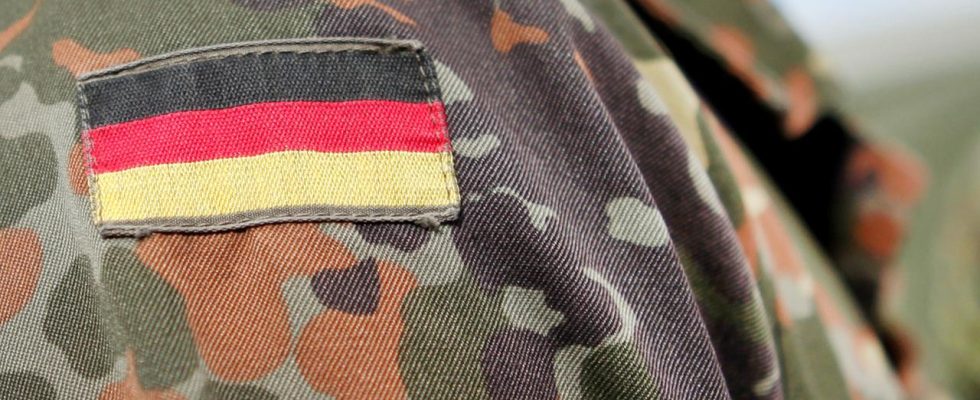analysis
Germany’s role in NATO has changed in recent months. The federal government is leading the way and promising a lot. It will only be seen in a few years whether she will keep all her promises.
In the weeks leading up to the NATO summit, the German government made positive headlines, at least in the defense sector. The chancellor took beautiful pictures during the naval maneuvers in the Baltic Sea or in the fighter jet during the Air Defender major maneuver. And his defense minister, Boris Pistorius, made Lithuanian President Gitanas Nauseda happy when he announced two weeks ago that he would station 4,000 German soldiers permanently in Lithuania. In addition, there are German Patriot missiles that secure the NATO summit and the German-French brigade that practices for emergencies.
So far it’s just announcements
The Bundeswehr is omnipresent before the NATO summit. But with a view to the Lithuania stationing, there has only been the surprising announcement by Pistorius. The required infrastructure for the accommodation of 4000 German soldiers and their families is still missing. It should be finished by 2026. And yet, on the day before the NATO summit in Vilnius, Lithuanian President Nauseda and NATO Secretary General Stoltenberg once again explicitly praised Germany. The impression that catches the eye: after years of standing still in terms of defense policy, Germany is finally moving forward.
Pistorius’ French colleague Sébastian Lecornu even called it the “Pistorius system” during his visit to Berlin on Monday. For the SPD politician himself, the “military turning point” is not just about more money for procurement, but “always about taking action.”
Acting, for Pistorius, also means demanding decisions. Example Poland: In April, the German defense minister and his Polish counterpart, Blaszczak, agreed to set up a repair center for Ukrainian “Leopard 2” battle tanks. But nothing happened. Apparently it is due to the industry and their different price expectations. At least that’s what the “Spiegel” reports.
Here, too, Pistorius is pushing. During his visit last week, he said that Germany was ready to “take responsibility” and gave Poland an ultimatum so that the repair center could finally be implemented. That’s what happens with the NATO summit. Pistorius needs a result here too.
Bundeswehr before “ambitious projects”
4000 permanently stationed German soldiers – from 2026 for Lithuania. Already in 2025 the first fully equipped army division for NATO. And a second division was promised for 2027. In the Bundeswehr there have long been doubts about the feasibility of such personnel-intensive promises.
The chairwoman of the defense committee Strack-Zimmermann, FDP, speaks of an “ambitious project”. The Union’s defense politician, Henning Otte, goes even further and even warns the federal government against raising expectations that may not be kept. And indeed: After Lithuania, Romania can also imagine German troop stationing.
NATO’s two percent target
In order to implement the ambitious goals, the Bundeswehr needs personnel and money. With a view to the NATO summit, it is an advantage that the federal budget was decided so late by the cabinet. Because next year, Germany will probably spend two percent of annual economic output on defense for the first time. However, only because the current defense budget is offset against the expenditure from the 100 billion special fund.
The security expert Christian Mölling from the German Society for Foreign Policy sees a problem here. In the NDR-Podcast “Forces and Strategies” he criticizes that provisions are not made in the regular defense budget. After all, once the Bundeswehr’s 100 billion euro special fund has been spent, NATO’s 2 percent target would no longer be achieved. Mölling fears that the billions will start to lose their effect in two years. Then you have another year in which “this drug creeps out, the rest of the 100 billion. And suddenly you’re standing there and you’re falling into a very deep hole”.
That means the German government can still score points at the NATO summit in Vilnius. But in the medium to long term, many promises and plans are not counter-financed. If Germany wants to take on a permanent military leadership role in the European part of NATO, it is likely to be significantly more expensive. Otherwise, it remains with many announcements.

